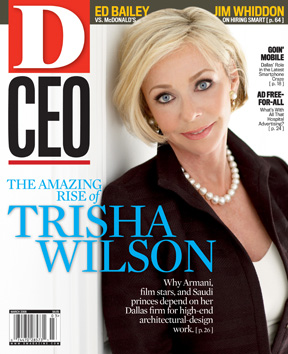On old saying has it that, “a rising tide lifts all boats.” That adage will apply to Dallas hotels, too, when the city finally makes an agreement to build a convention-center hotel. That is, a hotel that will be physically connected to the Dallas Convention Center.
A proposal is on the table now that would build and open a 1,000-room convention-center hotel in Dallas by early 2012. Dallas is the only one of the top 20 convention and meeting destinations in the country without a convention-center hotel announced, in the works, under construction, or open and operating. That needs to change yesterday.
Phillip Jones, president and CEO of the Dallas Convention & Visitors Bureau—of which I am a board member—summarizes the situation best: “It puts us at a serious competitive disadvantage, to the tune of $2.6 billion every single year.” According to Jones, more than 80 groups have not and will not bring their meetings to Dallas or our convention center. Why? Because we don’t have a hotel attached to the convention center and not enough “breakout” meeting space. Those groups even include the American Heart Association, whose national headquarters are located in Dallas.
According to statistics recently presented to the Dallas City Council by city staff, those 80 groups represent $800 million in direct spending and, as Jones points out, a $2.6 billion economic impact to the city. Those are tourists and business people who will be spending their money on souvenirs or at hotels, restaurants, sporting events, and concerts—not to mention generating local sales tax dollars—in some other city.
“It’s important for Dallas to retain its ranking as a top-tier convention city,” says Jones, who is making great progress in getting Dallas back to a top-five ranking. “Our competition is making the investment to bring conventions to their cities. If we want that business, we have to do the same thing. Our convention center is worth a billion dollars, and we have to protect that investment.”
Speaking of the competition, here’s how the picture looks: Atlanta, Chicago, Denver, Las Vegas, and New Orleans all have a convention-center hotel. Orlando, Fla.; Phoenix; and San Diego have one on the way. In Texas, Austin and Houston have one now, while Fort Worth and San Antonio will open their connected hotels later this year. “The competition isn’t standing still,” Jones says. “Not only are we losing business nationally, we’re also losing some in Texas.” That’s not to say business isn’t good. Last year, the Convention & Visitors Bureau boasted a 40 percent increase from four years ago in booked room nights. But it’s the big groups we’re missing out on that are going to cities that Dallas has always had an edge on in the past.
Sounds like a no-brainer, right? Not so fast. The ones having a little trouble getting on board—especially with any kind of taxpayer subsidy—are some of those other “boats,” so to speak. Brooke Dieterlen is the executive director of the Hotel Association of Greater Dallas, which is staying neutral in the debate.
“Our membership is divided,” Dieterlen says. “Anything that brings or drives more tourism and visitors to North Texas or the greater Dallas area, it is a no-brainer. However, there are also issues regarding the occupancy rate and how you don’t negatively impact that by adding even more saturation to the market without a good plan.”
Dieterlen rightly points out that the battle for guests is fierce among hotels—within Dallas and the entire North Texas region. She cites hotel-occupancy rates that are down anywhere from 1 percent to 4 percent from nearly a year ago in different parts of the city; hoteliers who are still skittish following 9/11; and all the current concern about an economic recession. In the meantime, billions of dollars in new development is in the mix, including several new boutique and high-end hotels hoping to find the waters warm in Dallas, expansions at the Gaylord Texan in Grapevine, a planned Glory Park development in Arlington, and potential plans for Texas Stadium in Irving.
“Any time one more new hotel comes into the market,” Dieterlen says, “the occupancy rates of the other hotels will be affected.”
But the hotel association has had a place at the negotiation table so far. It wants a convention-center hotel to come with more national marketing for Dallas as a whole. And it’s right to ask for that. An aggressive and well-funded marketing plan for Dallas will be an essential part of the convention-center hotel plan.
There are still many questions to be answered concerning public or private financing and the hotel’s ownership. Specifically, “How much?” and “How do we ensure taxpayers aren’t getting the short oar?” If done right, though, there’s reason for everyone—local taxpayers included—to expect all boats will stay afloat and indeed rise with a high tide of anticipated new conventions and visitors coming to Dallas.
Crayton Webb is manager of government relations for Mary Kay Inc. Previously, he was chief of staff to Dallas Mayor Laura Miller and an investigative reporter for CBS 11.





